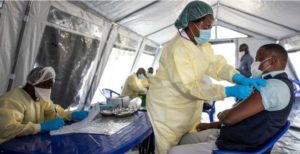U.N. report urges decriminalizing ‘sex work’ in Asia
By Richard S. Ehrlich
Bangkok – Thailand and New Zealand sound like the best places for prostitutes in Asia and the South Pacific, because they face repressive laws and live miserable and dangerous lives in the rest of the region, where the sex trade is outlawed, according to a new U.N. report that calls for the decriminalization of the voluntary sex trade.
The worst countries to be caught possessing a condom while appearing to work as a prostitute include China, Fiji, India, Indonesia, Malaysia, Myanmar, Nepal, Papua New Guinea, the Philippines, Sri Lanka and Vietnam. In those countries, an unused condom can be used as evidence that a person is an illegal sex worker.
Renting bodies for money in Asia also involves niche demographics.
On the Indian subcontinent, for example, so-called “flying” sex workers are people, such as students, who work part time.
Organizations focusing on prostitution, HIV/AIDS and related legal problems discussed these and other issues at a recent meeting in Bangkok, where they discussed the U.N. study “Sex Work and the Law in Asia and the Pacific.”
“Nearly all countries of Asia and the Pacific criminalize some aspects of sex work, … [but] criminalization increases vulnerability to HIV,” said Cherie Hart, a spokeswoman for the U.N. Development Program (UNDP), describing the dangers of contracting the human immunodeficiency virus (HIV), which causes acquired immune deficiency syndrome (AIDS).
The report called for the decriminalization of prostitution because it found “no evidence from countries of Asia and the Pacific” that outlawing the sex trade has prevented HIV epidemics among sex workers and their clients.
The report also called for euphemisms. “The terms ‘prostitution’ and ‘prostitute’ have negative connotations and are considered by advocates of sex workers to be stigmatizing,” said the 210-page report, authored by Australian human rights lawyer John Godwin.
“The term ‘sex work’ is preferred,” said the report, issued by the UNDP, the U.N. Population Fund, the Joint United Nations Program on HIV/AIDS (UNAIDS) and several nongovernmental organizations across Asia.
New Zealand and Australia’s New South Wales province are models of how decriminalization of prostitution boosted condom use and slowed the spread of HIV, resulting in “extremely low or nonexistent” transmission of sexual diseases among prostitutes, said the report.
“I would like to be a sex worker in New Zealand,” said Mandeep Dhaliwal, director of the UNDP’s HIV, Health and Development Practice, when asked which countries in Asia were the best places for them to earn a living as a prostitute.
Thailand is also a relatively safe place to be a prostitute. Although prostitution is illegal, authorities usually ignore the sex trade, enabling many upmarket Thai and foreign sex workers to enjoy higher wages, cleaner environments and less hassle compared with elsewhere in Asia, said Chantawipa Apisuk, who directs Empower, a Thai foundation led by prostitutes.
“Sex workers should enjoy the same labor conditions as factory workers or entertainers, said Ms. Chantawipa, who wore a T-shirt emblazoned with her favorite slogan: “Good girls go to heaven. Bad girls go everywhere.”
The report also studied call girls, street walkers and brothels and found that, in many Asian countries, they were “illegal, illegal, illegal,” said the report.
Problems are exacerbated when reformers and authorities voice shrill warnings about human-trafficking and forcibly “rescue” prostitutes who do not want to be “saved,” the report said.
“The language of some international and regional instruments have either implied a strong link between trafficking and sex work, or conflated these concepts,” it said, referring to local laws, international agreements and other formal legal arrangements.
Anti-trafficking laws should focus on minors in the sex trade and victims coerced or deceived into prostitution but not voluntary sex workers, the report said.-Washington Times















